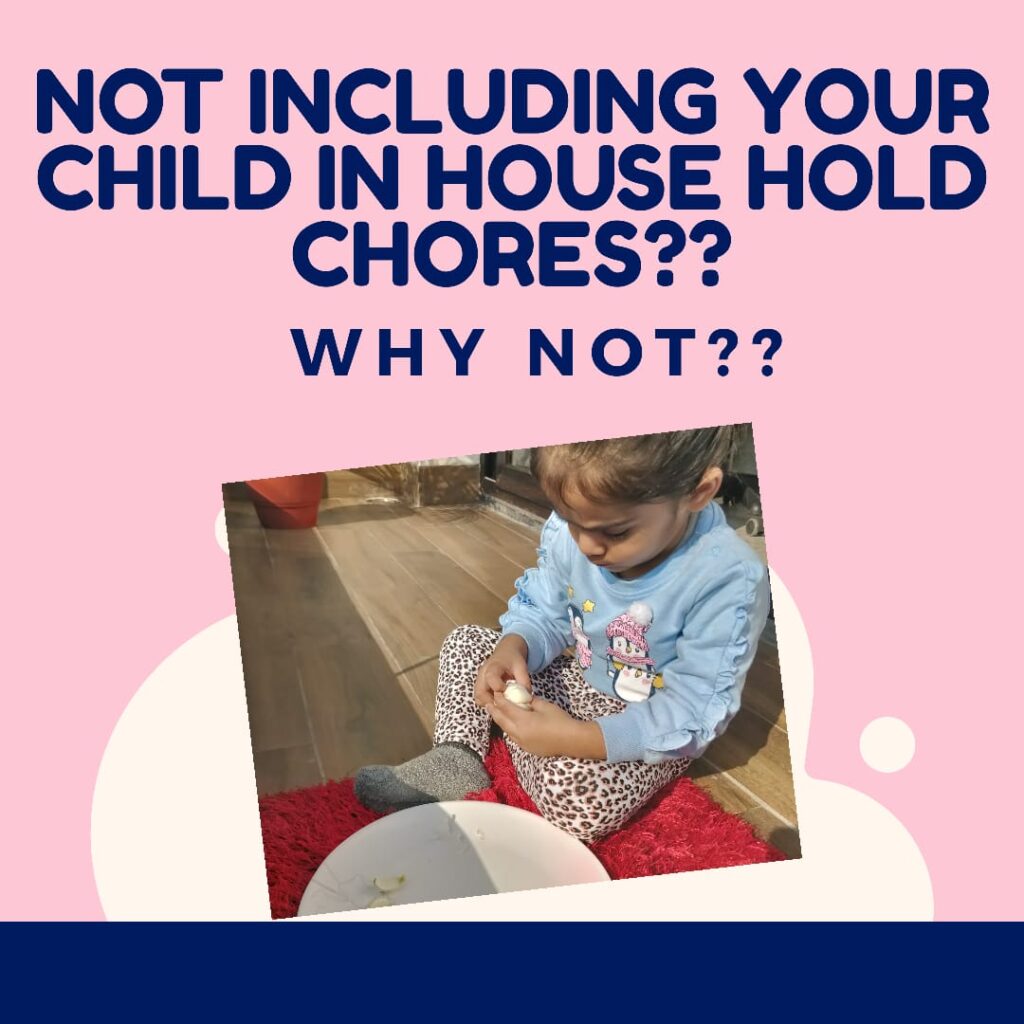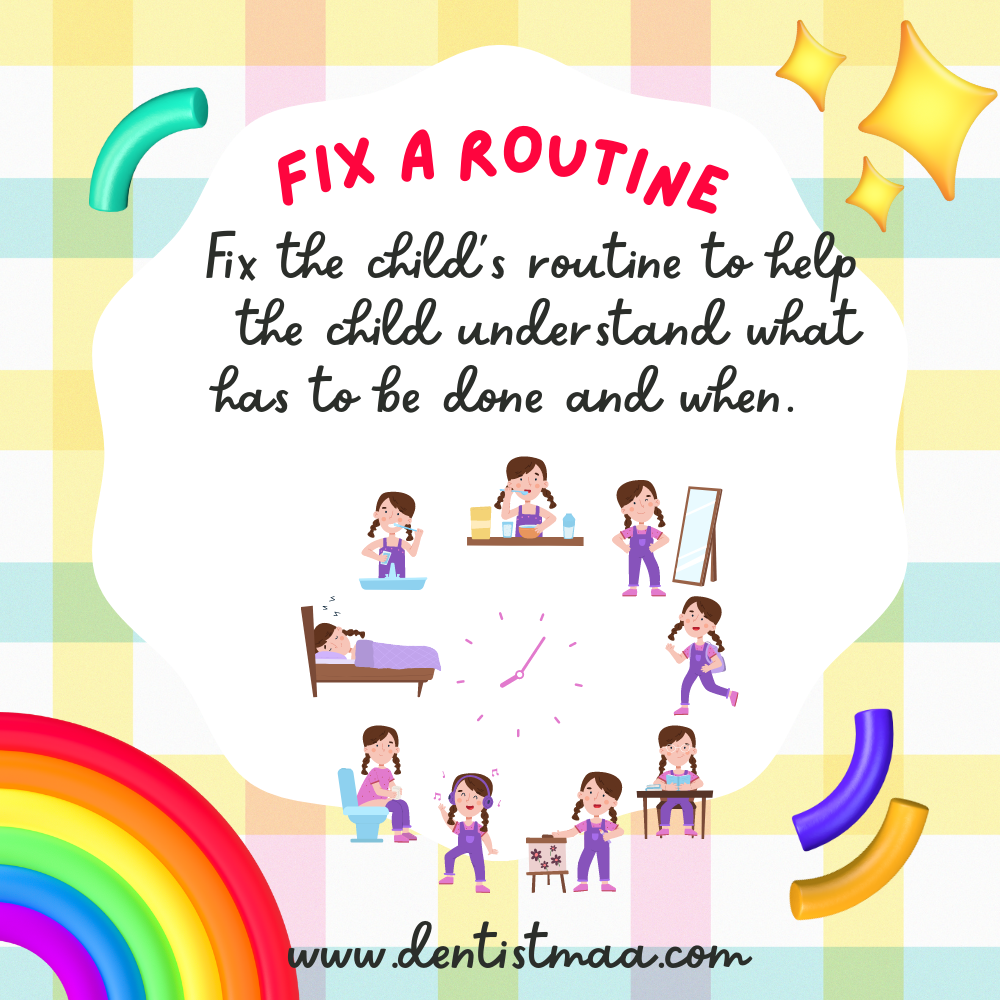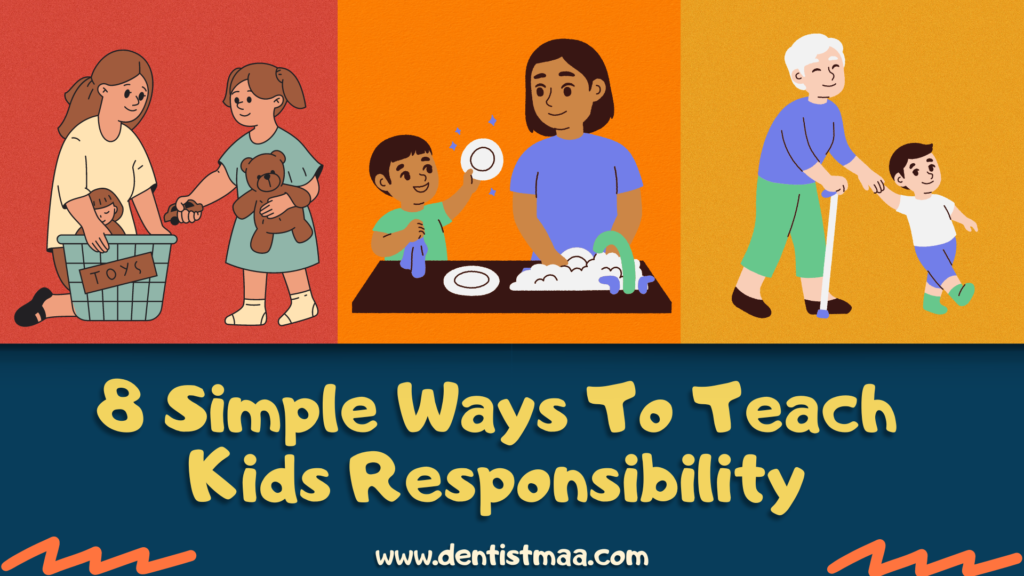Teaching responsibility to children is one of the most important things in parenting. It should not be forced upon them, but from the early years of life, it should be a part of routine life and activities. If we start early, the child will not feel as if it is a burden or something that is forced on the child. The child will think it is part of the daily routine.
Being responsible makes life more disciplined and easy for ourselves as well as our family and friends. Teaching responsibility can be a little hectic and overwhelming sometimes, but we should remember a responsible child will turn out to be a responsible adult later. And we need more responsible adults in the world today.
What is responsibility?
So, what exactly is responsibility?
Responsibility is when you understand that you need to do something not just because someone has asked you to do it, but because you think that is the right thing to do.
Responsibility comes from within. It might take time to make your child understand it, but if you are focusing on making your child responsible in the right way, the child eventually will be responsible.
e.g. you ask the child to clean the room and the child cleans the room. This is not responsibility. Here the child is just obeying you.
Your child cleans the room all by himself or herself. That is responsibility.
Why is teaching responsibility so important?
“A responsible child grows up to be a responsible adult.”
A child who is responsible need not wait for others to do his or her chores. Yes, you can always ask for help.
A child who is responsible understands the importance of things.
A child who is responsible can rely on himself or herself.
A child who is responsible will try to do his or her best at things.
A child who is responsible will know the pros and cons of doing something.
A child who is responsible will be more empathetic and caring.
Teaching responsibility is not just keeping the room clean or keeping your things in their place. Teaching responsibility is teaching your child a very important life lesson. The child will understand how important it is to take charge of things and work towards them. A responsible child has more chances of being a successful adult. A responsible child has more chances of being a leader.
How to teach responsibility to your child?
Start Early
Starting early is the key to most of the things in parenting. One fine day if you think you will start teaching responsibility to your child, that is not going to happen. Your child will think it is a task and will be reluctant to do it. Make it a habit. Make them believe that it is their job to take small responsibility. Since the child is a toddler, start incorporating small habits.
Give Age-Appropriate Tasks
Many times parents ask, why do I have to ask my child to do the chores at home? He or she is just a kid and has a whole life to the chores. But this is the wrong approach. A child should be made to indulge in small age-appropriate tasks at home. This helps in developing a sense of responsibility.
Chores like keeping their toys in place, keeping the plates in the kitchen after they finish their food, helping you fold laundry, giving them a cloth and asking them to help you in dusting, and so on, can help the child in the wrong run. You will have to help the child in the beginning but slowly the child will start doing it on his or her own.
Similar Read: Not including your child in household chores? Why Not?

Praise The Child
Everyone likes to be praised. Praise your child for the small efforts that he or she is doing. Praise your child just for trying to be responsible. Praise your child for understanding the importance of being responsible. You can also reward your child and give small gifts like stickers, books, colours, stationary etc. The child will feel appreciated and will try to do even better the next time.
Never give chocolates, candies or other junk food as rewards to your child.
Fix A Routine

Fixing a routine is very important. the child understands what has to be done and when, and this is a healthy way of teaching responsibility. There would be no confusion and the child’s mind would perceive that it is normal to do it.
e.g. putting all the legos back in the box, when you are done playing, putting the towel off for drying after taking a bath, washing hands immediately after coming back from school, changing the clothes and putting them in the laundry basket after school and so on.
Do Not Over Indulge
Initially, you will have to help your child be responsible for his or her things. But slowly you will have to withdraw yourself from the situation. It might be messy and time-consuming at first, but this is the way the child will learn. Make sure you do not prompt the child much. Just keep reminding them what they are doing as kids tend to get distracted very soon.
e.g. My daughter will be cleaning her room on her own, and suddenly she will find an old toy, and start playing with it. She will get distracted and forget that she was doing a chore. So, at this time I have to remind her that she needs to finish cleaning her room first and then, she can play with her toys.
Always Show Love
Never should a child feel lonely and not loved. Make sure the child is always loved, no matter whether the child behaves responsibly or not. Teaching responsibility is a process, and in between there will be ups and downs. The child will take some time to realise and understand how to be responsible. You might lose your sanity sometimes in between (you are human too), but remember to go back to the child, hug and kiss him or her, and do what their favourite thing is.
If the child feels that he or she is not loved, it can cause a tremendous amount of pressure on them, and the responsibility you are teaching would be of no use.
Teach Your Child Money Management Skills At The Right Age

Teaching the child about money is very important. You need not wait for them to be adults. You can start as early as the age of 5 years or even before that. Yes, they will not understand much but you can start building up how important is money, how should we be careful while spending it and how difficult it is to earn it.
You can also start by simply showing them various coins, and notes and helping them recognise them. While going out you can give them a small amount and ask them to spend it on things they need, and they will realise they can not buy everything from that. This will help them be responsible and understand that money should be spent wisely.
For elderly kids, you can fix a weekly or monthly allowance and ask them to spend wisely. This will be a very important step in raising a responsible kid.
Set An Example
Children do what they see.
As it is said, ” Actions speak louder than words.” If they see you fulfilling your responsibilities, they will be curious to do their part as well. When they see you clean your room every day, they will slowly start cleaning their room on their own every day. When you finish your office work or any of your work on time, they will learn to finish their homework on time, on their own.
When you go out, and see a parking spot only for the disabled, do not park there and show them you are a responsible citizen. Or, never cross a red light and be a responsible citizen. Do not throw the trash on the roads and be a responsible citizen. All this your children are looking at. And what you do, your children will copy.
So, be a role model. e.g. Recently I used the term, “I am being lazy” and I did not do a few of my chores. My 5-year-old copied me saying she doesn’t want to pick her stuff as she is being lazy. So, kids do what they see. When I clean my room, she does too. When I read a book, she too wants to read one. This age is for imitating which slowly will change into habit. So, do what you want your children to do.
Teaching responsibility requires a lot of patience, consistency and effort from both parents. Your child will not be responsible in a day or a week, but it will take years to raise a responsible child. A responsible child understands the importance of various things, what needs to be done what to be ignored, and how and when it needs to be done. Today’s responsible kid will become tomorrow’s responsible adult.
Give them the freedom to make their own decisions, spend their own allowance (but you should keep a check always), and bear the consequences. The child will feel capable as he or she grows if you have inculcated a sense of responsibility in him or her, and a capable child is more prone to success and happiness. But always remember, whatever the situation is, the child should always feel loved.
How do you teach your children that they are responsible for what they do?
The child will only take responsibility for his or her action if you let them face the consequences. Until and unless it is not safe, let the child face the consequences of his or her actions. The child will be more careful and responsible the next time. Once it is done, sit with the child, and explain how should he or she have been different. They would be better the next time.
How do you help your children be more financially responsible?
Start teaching about finances early. When you start early the child will understand how important money is. He or she will slowly start spending it wisely. Fix a monthly allowance. Make sure the child understands this is all they have got for the month. Talk about your finances to the child. When planning a purchase or a trip, let the child be a part of the discussion. Slowly the child will become financially responsible. Do not over-buy things for him or her.
What is a good way to teach a 5-year-old responsibility?
The best way is to start early. Engage the child in the household chores. When you go out give small responsibilities to the child, e.g. give the child something to hold, say a small bag and ask the child to take care of it. Tell the child it is his or her responsibility to make sure the bag is not lost. Be polite. Slowly it will become a habit and the child will start remembering things and being responsible.





Pingback: Is Your Child Ready to Read the News: Guide to Knowing When and How - DentistMaa